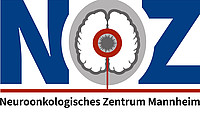You are here
Content
Service range
Neurosurgery - surgical therapy
Patients with a brain tumor (glioblastoma, etc.) receive optimal care at UMM. The Department of Neuroradiology has the full range of imaging diagnostics including functional imaging.
Surgical therapy is performed by the Clinic for Neurosurgery using microsurgical techniques, i.e. under the operating microscope. Two of the most modern surgical microscopes with the possibility of intraoperative fluorescence imaging are available for this purpose.
In addition, with neuronavigation, intraoperative electrophysiology and ultrasound, powerful technical aids are available for these procedures, which increase the safety of the procedure and ensure that the brain tumor is removed as gently as possible.
Radio surgery
Some brain tumors cannot be sensibly treated by surgery - e.g. because of their location in the brain. Often, however, there are concomitant diseases (e.g. severe heart or lung diseases) that can prevent surgery from being the first choice therapy. In these cases, radiosurgery ("radiation scalpel") can be an alternative. This method is also used for targeted radiation of tumor cavaties after surgery. For this purpose, the University Medical Center Mannheim has the first fully academic Gammaknife® of the most modern generation (Gammaknife ® PERFEXION) with integrated imaging. A mask or metal frame is required to guarantee positioning accuracy. Specially trained and very experienced staff takes care of the patients.
Radiation therapy
Brain tumors can be treated by the use of radiotherapy. In this case, radiation can be used in combination surgery before or after this as the only ("definitive") therapy. If an irradiation is required, 4 ultra-modern linear accelerators are available in the Clinic for Radiotherapy. All devices are equipped with CT-controlled precision bearing technology ("image-guided radiotherapy", IGRT) and are capable of performing so-called intensity-modulated radiotherapy (IMRT) using the latest methodology (Volumetric Modulated Arc Therapy). With IMRT/VMAT, risk organs can be efficiently spared and the side effects of radiation can be significantly reduced. In addition to the linear accelerators, the INTRABEAM(R) system is available, which enables precise and immediate irradiation even during surgery. In cooperation with the Department of Neurosurgery, patients with glioblastoma or metastases are carefully informed and prepared for intraoperative radiotherapy (IORT) before surgery.
Neurology
In close interdisciplinary cooperation, the Neurological Clinic treats patients with brain tumors or with neurological symptoms in the context of other cancer diseases. For comprehensive diagnostics, in addition to imaging procedures in cooperation with the Department of Neuroradiology, the entire spectrum of additional diagnostic equipment such as electroencephalography (EEG), electroneurography (ENG) and neuropsychological test procedures are available. In addition to drug therapy of brain tumors, which is carried out on an outpatient or (partially) inpatient basis, individual support and structured aftercare is offered. If necessary, accompanying physical therapies such as ergotherapy, physiotherapy or speech therapy are initiated and outpatient help is arranged.
Clinical studies / experimental therapies
The Neurooncology Center Mannheim offers therapy studies of the Neurooncological Association (NOA), the European Organisation for Research and Treatment of Cancer (EORTC) and company-sponsored therapy studies with new therapeutic approaches for malignant brain tumors and brain metastases. The possibility of participating in the study will be discussed in detail with the patients and their relatives after evaluation in our interdisciplinary case conference. For example, Mannheim University Medical Center is the first center worldwide to offer intraoperative radiotherapy as part of studies. In this regard, patients can also take advantage of a detailed consultation in our special consultation hour. If the pre-treatment was carried out at another center, please bring the necessary documents and imaging findings in the form of a CD-ROM.
Second Opinion
In addition to patients with newly diagnosed disease, patients who are already undergoing external treatment can also apply for a second opinion at our neurooncology center.
Post-treatment
In the event of necessary follow-up treatment, the exact procedure is determined in an interdisciplinary tumor conference by specialists and senior physicians for neurosurgery, neuroradiology, radiotherapy, neurology and oncology.
Cooperations
In addition to cooperation with the specialist departments of the hospital and the psycho-oncological service, there is also cooperation with the German Cancer Research Centre and the Neuropathology Department in Heidelberg with the possibility of innovative imaging diagnostics or special neuropathological examinations.
Further information on the following topics can be found here:
Context Column

About the International Patient Office
The International Patient Office (IPO) welcomes patients from all over the world and assists with requests for medical treatment. Click here to read more about the IPO.
Certified by the German Cancer Society e.V.
EANO guidelines on the diagnosis and treatment of diffuse gliomas of adulthood
Weller, M., van den Bent, M., … Platten, M., et al., Nat Rev Clin Oncol (2021).
https://doi.org/10.1038/s41571-020-00447-z

